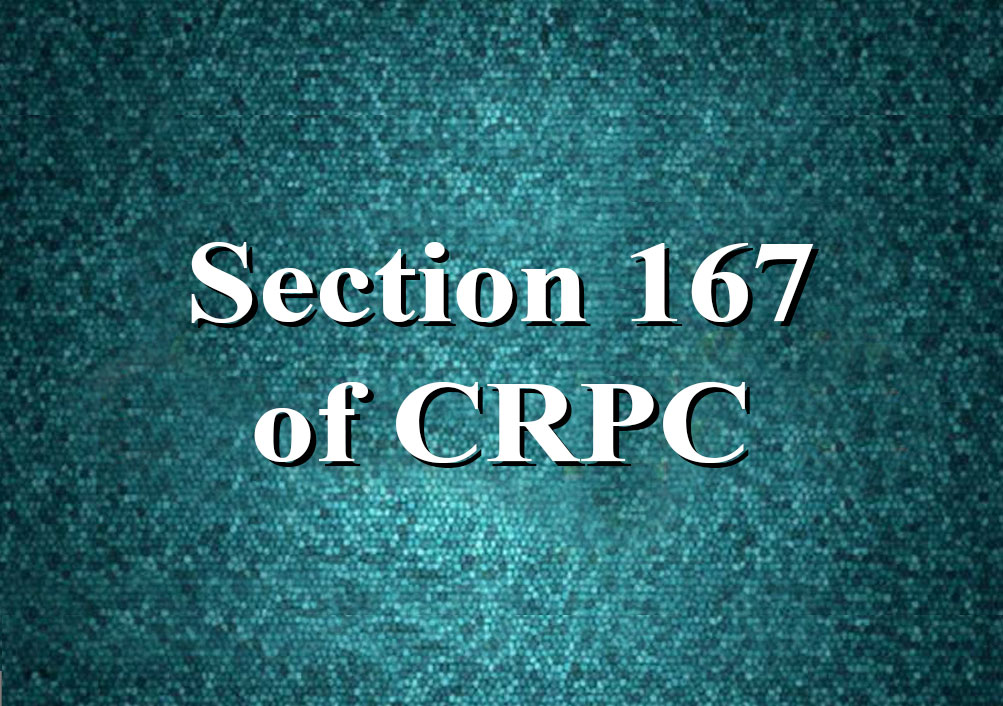Indefeasible right of accused to seek bail u/s 167(2) CrPC arises only if charge-sheet was not filed before expiry of statutory period, reaffirms Apex Court

Read Judgment: Serious Fraud Investigation Office V. Rahul Modi & Ors.
Pankaj Bajpai
New Delhi, February 8, 2022: While considering the issue on arrest of certain accused persons by Serious Fraud Investigation Office for offences under the Companies Act and Limited Liability Partnership Act, the Supreme Court has opined that an accused is entitled for statutory bail u/s 167(2), CrPC on the ground that cognizance has not been taken before the expiry of 60 days or 90 days, as the case may be, from the date of remand.
Therefore, quoting the decisions of the Top Court itself in Sanjay Dutt v. State, (1994) 5 SCC 410, Mohamed Iqbal Madar Sheikh & Ors. v. State of Maharashtra , (1996) 1 SCC 722, and M. Ravindran v. Intelligence Officer, Directorate of Revenue Intelligence, (2021) 2 SCC 485, a Division Bench of Justice L. Nageswara Rao and Justice B.R Gavai reiterated that the indefeasible right of an accused to seek statutory bail u/s 167(2) CrPC arises only if the charge-sheet has not been filed before the expiry of the statutory period.
Going by the background of the case, an investigation was directed to be conducted into the affairs of Adarsh Group of Companies and LLPs by the Central Government in exercise of the powers conferred u/s 212(1)(c) of the Companies Act, 2013 and sub-sections (2) and (3)(c)(i) of Section 43 of the Limited Liability Partnership Act, 2008, pursuant to which Rahul Modi & Others (first & second Respondents) were arrested upon the approval granted by the Director, SFIO (Appellant).
The High Court however considered their regular bail applications and directed their release on bail on the ground that the trial court has not taken cognizance of the complaint before the expiry of the 60-day period, which entitled the Respondents to statutory bail, as a matter of indefeasible right.
After considering the submissions, the Top Court relied on the decision of this Court in Suresh Kumar Bhikamchand Jain v. State of Maharashtra & Anr., (2013) 3 SCC 77 , wherein it was held that in the event of investigation not being completed by the investigating authorities within the prescribed period, the accused acquires an indefeasible right to be granted bail, if he offers to furnish bail.
“In the case of Bhikmchand, this Court was of the firm opinion that if on either the 61st day or the 91st day, an accused makes an application for being released on bail in default of charge-sheet having been filed, the court has no option but to release the accused on bail. However, once the charge- sheet was filed within the stipulated period, the right of the accused to statutory bail came to an end and the accused would be entitled to pray for regular bail on merits. It was held by this Court that the filing of charge-sheet is sufficient compliance with the provisions of proviso (a) to Section 167(2), CrPC and that taking of cognizance is not material to Section 167”, added the Court.
Speaking for the Bench, Justice Rao reiterated that filing of a charge-sheet is sufficient compliance with the provisions of Section 167, CrPC and that an accused cannot demand release on default bail u/s 167(2) on the ground that cognizance has not been taken before the expiry of 60 days.
The accused continues to be in the custody of the Magistrate till such time cognizance is taken by the court trying the offence, which assumes custody of the accused for the purpose of remand after cognizance is taken, and therefore, the conclusion of the High Court that the accused cannot be remanded beyond the period of 60 days u/s 167 and that further remand could only be at the post-cognizance stage, is not correct in view of the judgment of this Court in Bhikamchand Jain Case (Supra), added the Bench.
Accordingly, the Apex Court set aside the order passed by the High Court.
Sign up for our weekly newsletter to stay up to date on our product, events featured blog, special offer and all of the exciting things that take place here at Legitquest.




Add a Comment